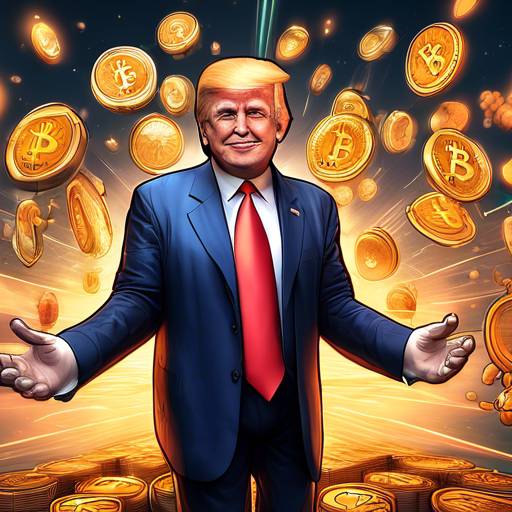Former President Trump Acknowledges Bitcoin’s Growing Adoption
In a surprising turn of events, former President Donald Trump has changed his tune on Bitcoin. While he previously denounced the cryptocurrency as a “scam” and even instructed treasury officials to “go after” it during his presidency, he now says he “can live with” Bitcoin and recognizes its accelerating adoption.
TLDR
- Former President Trump now acknowledges Bitcoin’s growing adoption for payments.
- This is a stark contrast to his previous stance of calling Bitcoin a “scam” and vowing to “go after” it.
- Some speculate that Trump’s change in stance is a political tactic to appeal to crypto-focused voters for the 2024 election.
- Trump mentioned the possibility of Bitcoin regulation but did not provide specifics.
- He remains opposed to central bank digital currencies (CBDCs) due to privacy concerns and risks of government overreach.
In a recent interview with Fox News, Trump acknowledged the momentum of Bitcoin when asked about countering Chinese digital currency dominance. While he still prefers the U.S. dollar, he admitted that “many people are doing it (Bitcoin)” and that there is a growing desire to pay in the cryptocurrency. This newfound openness contrasts with his previous hostility towards Bitcoin.
Some believe that Trump’s change in stance is politically calculated, as cryptocurrency and blockchain technology have gained popularity among younger conservative voters. This pattern of politicians temporarily shifting positions to attract key demographics is not uncommon. It is possible that Trump may reframe his views on Bitcoin depending on the audience he is addressing.
Despite this, Trump seems to recognize the reality of expanding cryptocurrency use that cannot be regulated away or banned outright. He mentioned that Bitcoin has “taken a life of its own” and acknowledged the need for some regulation, although he did not provide any specifics. However, he remains strongly opposed to central bank digital currencies due to concerns about government overreach.
If Trump were to be elected again, his anti-establishment positioning could lead to a more innovation-friendly crypto policy environment. By appointing regulators who are supportive of business interests, there could be a relief in regulatory pressures on the cryptocurrency industry.
It is important to note that Trump is known for abrupt reversals and inconsistencies across issues. While he may currently be open to accepting Bitcoin, his stance could quickly change if it becomes politically expedient. Nonetheless, his softened rhetoric aligns with the warming posture of formerly crypto-skeptic Republican lawmakers who are now showing interest in blockchain-based innovation.
Hot Take: The Potential Impact of Trump’s Changing Stance on Bitcoin
Trump’s acknowledgment of Bitcoin’s growing adoption and his willingness to “live with” it marks a significant shift in his stance on cryptocurrencies. This change could have several implications:
Appealing to Crypto-Focused Voters
By embracing Bitcoin, Trump may be attempting to appeal to crypto-focused voters for the upcoming 2024 election. Cryptocurrency and blockchain technology have gained traction among younger conservative voters, and this shift in stance could help him garner support from this demographic.
Potential Regulation
Although Trump mentioned the need for regulation, he did not provide any specifics. If elected again, his administration would need to define what this regulation would entail. This could have an impact on how cryptocurrencies are regulated and perceived in the United States.
Innovation-Friendly Crypto Policy Environment
If Trump were to create a more innovation-friendly crypto policy environment by appointing regulators who are supportive of business interests, it could alleviate regulatory pressures on the cryptocurrency industry. This could potentially lead to increased investment and development in the crypto space.
Overall, Trump’s changing stance on Bitcoin reflects the growing acceptance and adoption of cryptocurrencies. While his motivations for this change may be politically driven, it opens up opportunities for further discussions and developments in the crypto world.





 By
By
 By
By
 By
By
 By
By

 By
By